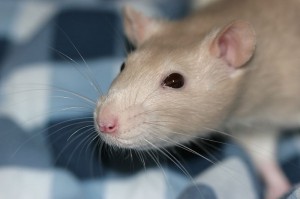Microbiomes are incredibly vast and mysterious; we don’t quite know how they work. However, with a few experiments, we have come to a few conclusions.
1) Microbiomes determine your weight.
Scientists extracted bacteria from the intenstines of human twins, one lean and one larger. The injected these microbiomes into twin mice. The mouse who received the large twin’s microbiome gained fat and the mouse who received the lean twin’s microbiome remained small.
2) Fat microbiomes can be influenced by a skinny microbiome.
A fat mouse placed in a cage of skinny mice lost weight.*
3) Skinny microbiomes cannot be changed.
A skinny mouse placed in a cage of fat mice remained skinny.*
4) With the correct diet, you can become skinny.
Fat mice eating healthy food made them skinny but when they ate junk food, they stayed fat. A different group of scientists replicated this experiment with overweight humans and a low calorie diet. Their microbiotic diversity was low and increased significantly, leading to weight loss.
5) Diet does not affect skinny people.
Regardless of which diet the skinny mice ate, they stayed skinny. A different group of scientists replicated this experiment with skinny people and a low calorie diet. Their microbiotic diversity was already high and did not change much.
*read the full study here
Why?
Fat microbiomes tend to be more efficient at extracting nutrients from food and storing the excess, so whenever someone with an efficient microbiome eats, he/she stores a lot of the nutrients. Skinny microbiomes, on the other hand, are not as efficient at extracting nutrients so there is less energy to store after a meal. Going on a low calorie diet if you want to lose weight could solve the problem because whatever can be extracted from the food will be used for day to day functions. Considering that skinny people already are not extremely efficient at extracting nutrients, a low calorie diet will not necessarily cause any significant changes.
This source performed a study (humans) where they discovered that obese people typically have lower genetic diversity than lean people. Obese people who went on a low calorie diet had a higher genetic diversity at the end of the experiment than those who did not go on a low calorie diet, and obese people who continued to have a low genetic diversity gained significantly more weight over nine years. Lean people who went on a low calorie diet did not have a significant increase in microbiotic diversity compared to lean people who did not go on that diet. However, this correlation does not imply causation because some obese people have a high genetic diversity. Scientists believe that a low genetic diversity is linked to metabolic disorders, which could cause obesity, but that obesity in and of itself is not always caused by low genetic diversity.
Whenever you touch, breathe, or eat something, bacteria is entering your body and interacting with the native bacteria. So, when fat mice interact with skinny mice, it’s possible that the fat mice pick up diverse bacteria from skinny mice, contributing to their increase in microbiotic diversity, and when skinny mice interact with fat mice, they can’t lose genetic diversity but also have nothing really to gain from mice with low genetic diversity.
Conclusion: If you have a metabolic disorder, it could be beneficial to surround yourself with skinny people and eat low calorie foods because you’re more likely to absorb diverse types of bacteria while also storing less energy from food.



Leave a Reply